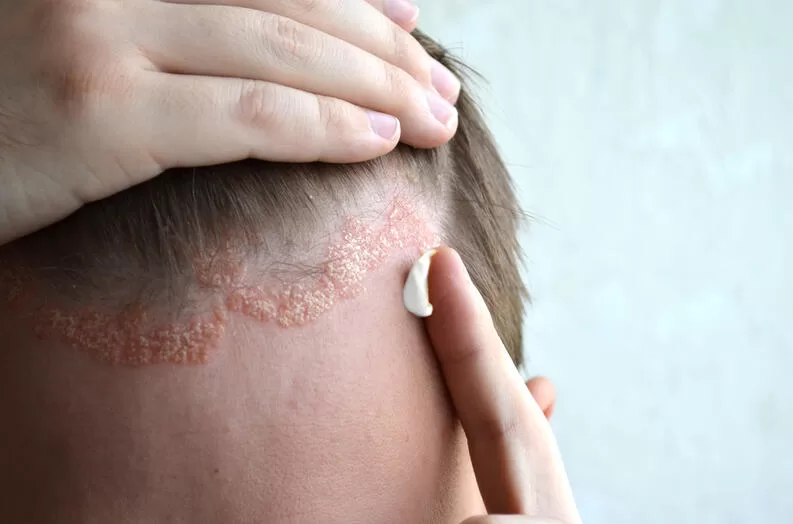Can Vitamin C Serum Help with Seborrheic Dermatitis?
Seborrheic dermatitis can cause dry, flaky, and red patches on the skin, making it difficult to find products that are both effective and gentle. If you’ve been wondering, “Is it okay to use vitamin C serum with seborrheic dermatitis?” you’re not alone. In this article, we’ll explore how Vitamin C can affect your skin, especially when dealing with conditions like seborrheic dermatitis, and provide some useful tips for incorporating it into your skincare routine.
What is Seborrheic Dermatitis?
Seborrheic dermatitis is a common, chronic skin condition that results in red, inflamed, and scaly patches, usually on oily areas like the scalp, face, and chest. It’s often triggered by stress, hormonal changes, or weather conditions. Managing this condition can be tricky, especially when choosing skincare products.

How Vitamin C Benefits Seborrheic Dermatitis
Vitamin C is a powerful antioxidant known for its ability to brighten the skin, boost collagen production, and protect against environmental damage. Many people use Vitamin C serums to reduce hyperpigmentation, improve skin texture, and fight free radicals. But is it a good idea to use Vitamin C serum if you have seborrheic dermatitis?

Anti-Inflammatory Effects of Vitamin C on Seborrheic Dermatitis
1. Anti-inflammatory Properties
One of the key benefits of Vitamin C is its anti-inflammatory properties. These can help soothe redness and irritation, which are common symptoms of seborrheic dermatitis. By reducing inflammation, Vitamin C may help improve the overall appearance of affected skin.
2. Strengthening the Skin Barrier
Vitamin C promotes collagen synthesis, which is essential for maintaining a strong skin barrier. A robust skin barrier is crucial for people with seborrheic dermatitis, as it helps lock in moisture and protect the skin from further irritation.

Roycederm Psoriasis Seborrheic Dermatitis Cream & Shampoo & Conditioner Set
Risks of Using Vitamin C with Seborrheic Dermatitis
1. Increased Sensitivity
While Vitamin C has many benefits, it can also cause irritation, especially for those with sensitive or compromised skin. Seborrheic dermatitis already makes your skin more sensitive, so adding Vitamin C might exacerbate symptoms like burning, redness, or itching.
2. Product Formulation Matters
Not all Vitamin C serums are created equal. Some formulas contain alcohol or fragrances that can irritate seborrheic dermatitis. It’s essential to choose a gentle, fragrance-free Vitamin C serum, ideally formulated for sensitive skin.
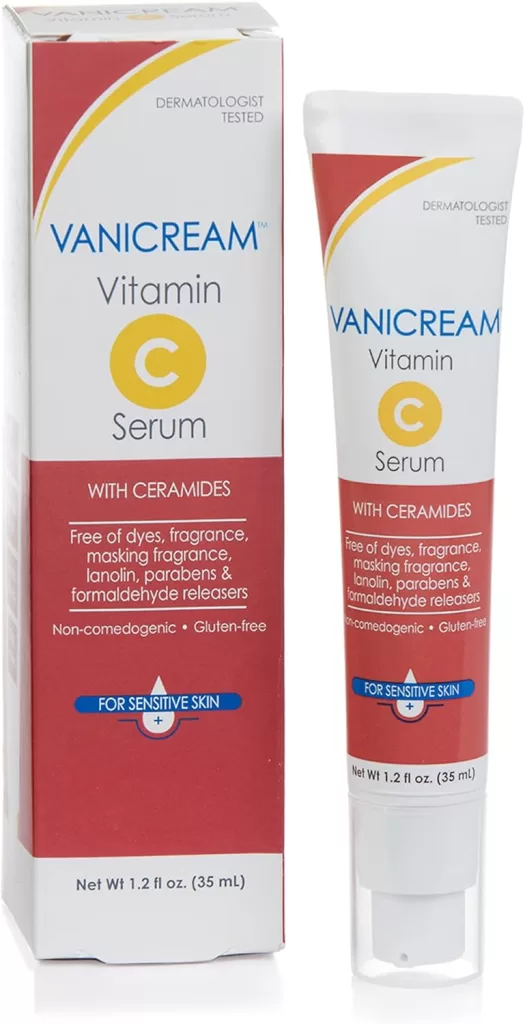
Vanicream Vitamin C Serum – Free of Dyes, Fragrance, Masking Fragrance, Lanolin, Parabens & Formaldehyde Releasers – For Sensitive Skin – 1.2 Fl Oz
How to Safely Use Vitamin C Serum with Seborrheic Dermatitis
1. Patch Test First
Before introducing Vitamin C into your skincare routine, always perform a patch test. Apply a small amount of serum on a discreet area and wait 24-48 hours to ensure there’s no adverse reaction.
2. Choosing the Right Vitamin C Concentration for Sensitive Skin
Start with a low concentration of Vitamin C (around 10%) and gradually work your way up. Higher concentrations may be too harsh for those with seborrheic dermatitis.
3. Moisturize Afterwards
After applying Vitamin C serum, it’s crucial to follow up with a hydrating, non-comedogenic moisturizer. This will help soothe your skin and prevent dryness, which can worsen seborrheic dermatitis.
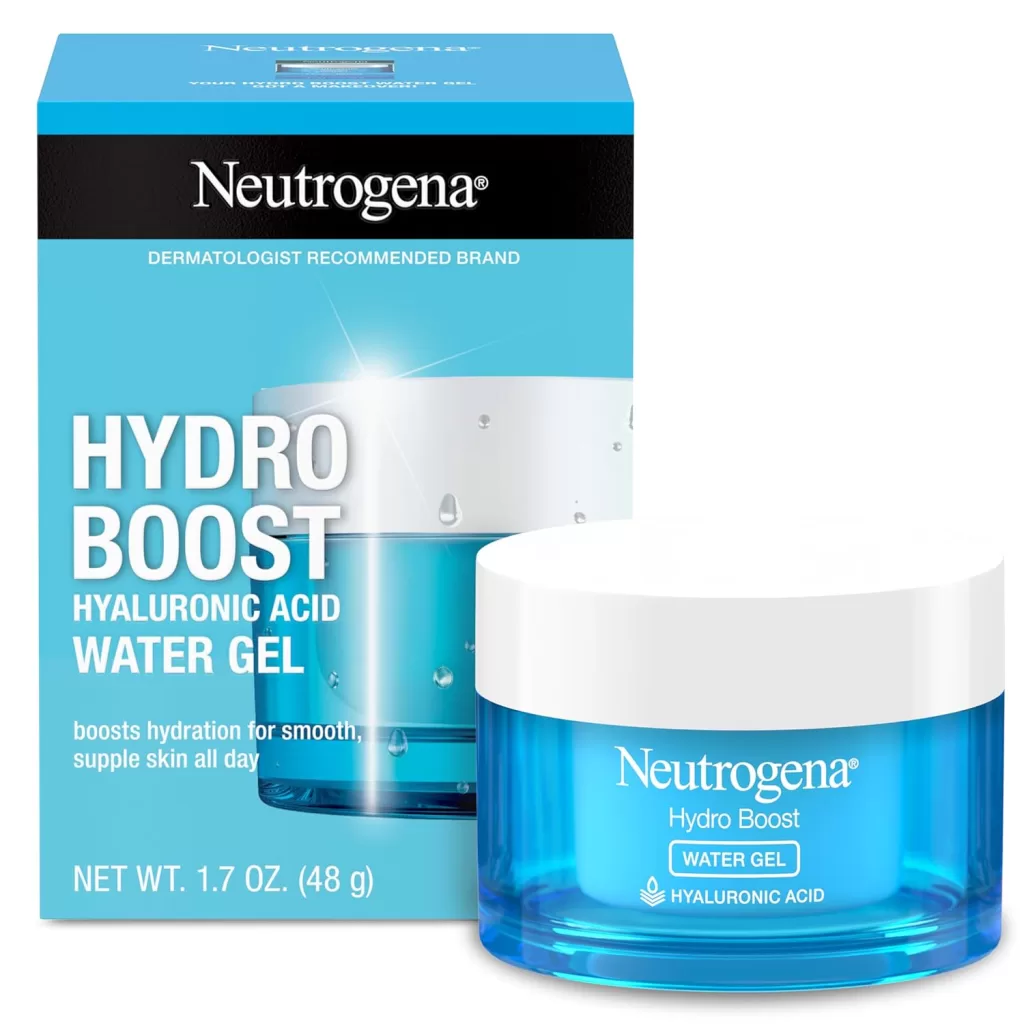
Neutrogena Hydro Boost Face Moisturizer, 1.7 oz (Pack of 1) | oil-free, non-comedogenic, water gel | hyaluronic acid
4. Limit Usage
If you notice any irritation, reduce the frequency of Vitamin C application to once or twice a week. This gives your skin time to adjust without overwhelming it.
Alternative Treatments to Vitamin C for Seborrheic Dermatitis
1. Anti-Fungal Creams
Topical anti-fungal treatments are often prescribed to treat seborrheic dermatitis, as the condition is linked to an overgrowth of yeast. These creams can help reduce inflammation and control flakiness.
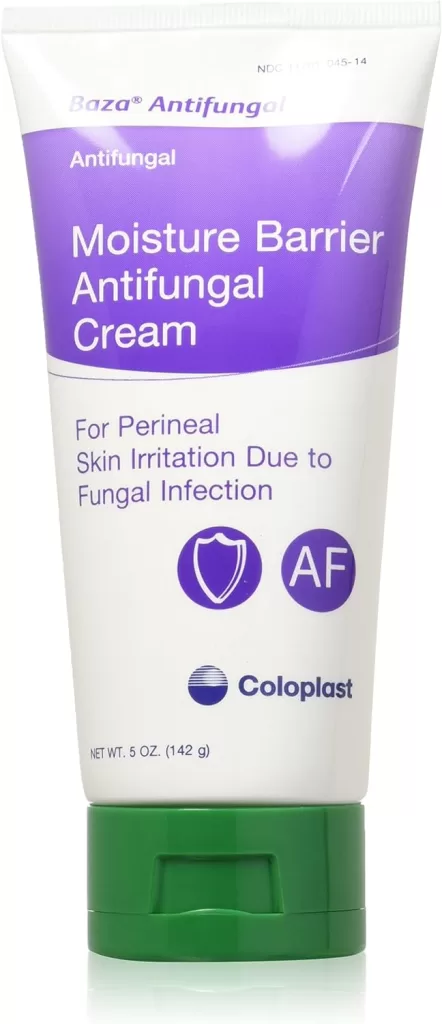
Baza Moisture Barrier Antifungal Cream 5oz (Pack of 2)
2. Hydrating and Soothing Products
Look for products containing ingredients like hyaluronic acid, glycerin, or colloidal oatmeal, which can hydrate the skin and alleviate dryness and irritation.
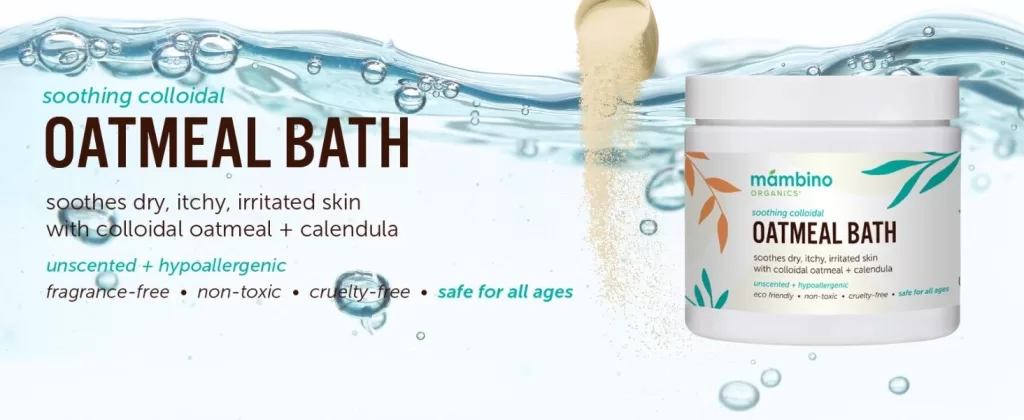
3. Niacinamide
Another excellent option for those with seborrheic dermatitis is niacinamide. This B-vitamin is known for its anti-inflammatory properties and ability to regulate oil production, making it ideal for sensitive and oily skin types.
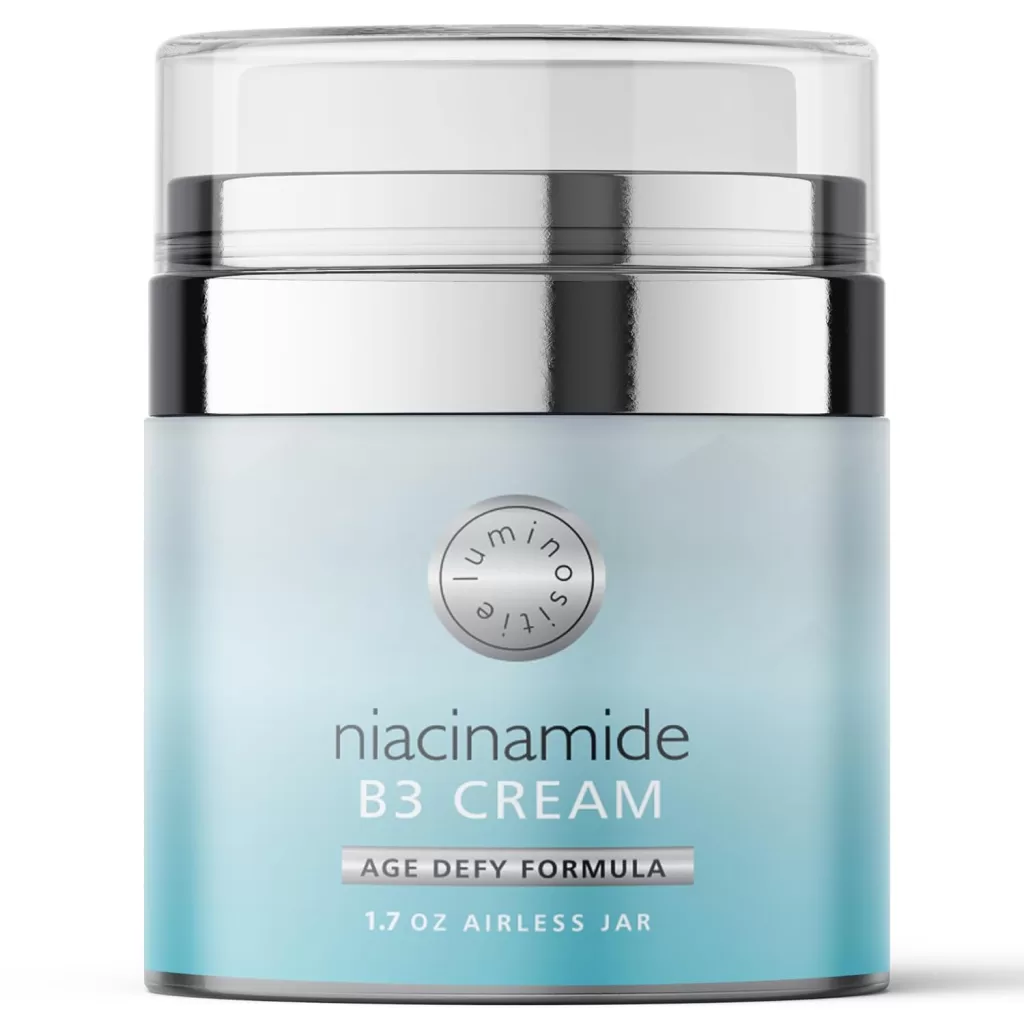
5% Niacinamide Vitamin B3 Cream Serum – Anti-Aging For Face & Neck. 1.7oz. Use Morning & Night. Firms & Renews Skin. Tightens Pores, Reduces…
When to Avoid Vitamin C with Seborrheic Dermatitis Flare-ups
If your seborrheic dermatitis is currently flaring up or you’re experiencing severe symptoms, it might be best to avoid Vitamin C until your skin has calmed down. Consult with a dermatologist to get personalized advice on whether Vitamin C is suitable for your skin at this stage.
Conclusion
So, is it okay to use Vitamin C serum with seborrheic dermatitis? The answer is yes, but with caution. Vitamin C offers numerous skin benefits, including anti-inflammatory effects and skin barrier support, but it can also trigger irritation if not used properly. Always start with a patch test, choose a gentle formula, and follow up with a hydrating moisturizer. By taking these steps, you can safely incorporate Vitamin C into your skincare routine and enjoy its benefits without aggravating your seborrheic dermatitis.
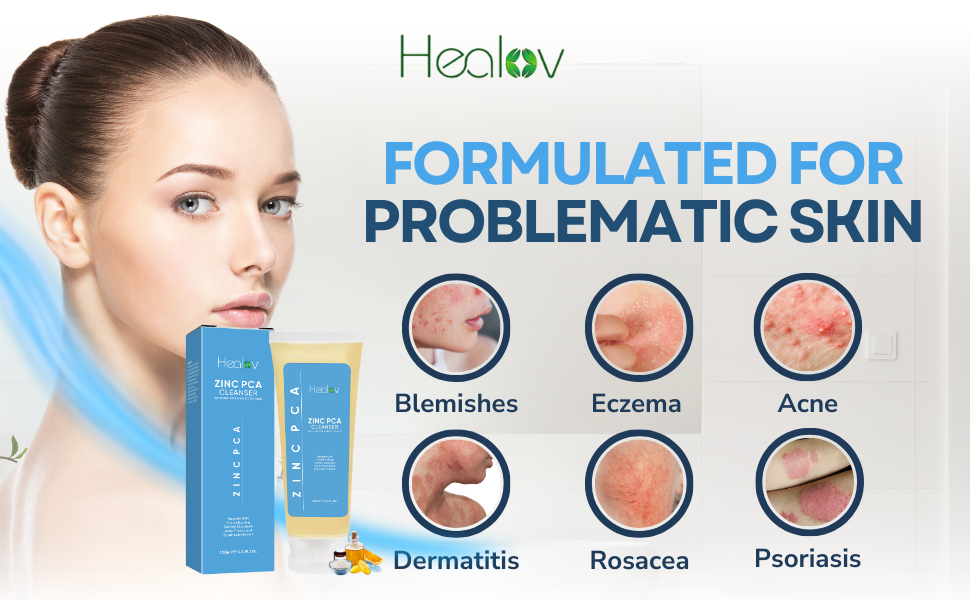
FAQ: Can Vitamin C Serum Help with Seborrheic Dermatitis?
What is Seborrheic Dermatitis?
Seborrheic dermatitis is a common skin condition that causes red, flaky, and itchy patches on the scalp, face, and other areas. It’s often triggered by factors like stress, hormones, and weather.
Can Vitamin C Serum Help with Seborrheic Dermatitis?
Vitamin C can be beneficial for seborrheic dermatitis due to its anti-inflammatory properties and ability to strengthen the skin barrier. However, it’s important to use it cautiously, as it can irritate sensitive skin.
How Can I Safely Use Vitamin C Serum with Seborrheic Dermatitis?
- Patch Test: Always do a patch test before using a new product.
- Start Slow: Begin with a low concentration of Vitamin C and gradually increase it.
- Choose Gentle Formulas: Opt for fragrance-free and alcohol-free serums.
- Moisturize: Use a gentle, hydrating moisturizer to prevent dryness.
- Monitor Your Skin: If you experience irritation, reduce the frequency of use or stop using it temporarily.
Are There Other Treatments for Seborrheic Dermatitis?
Yes, other treatments include:
- Anti-fungal creams: These help reduce yeast overgrowth.
- Hydrating products: Moisturizers can soothe and hydrate the skin.
- Niacinamide: This ingredient can reduce inflammation and regulate oil production.
When Should I Avoid Vitamin C with Seborrheic Dermatitis?
If you’re experiencing a severe flare-up, it’s best to avoid using Vitamin C until your skin calms down. Consult with a dermatologist for personalized advice.
Remember, it’s crucial to listen to your skin and adjust your routine accordingly. If you’re unsure about using Vitamin C, consult with a dermatologist for personalized advice.
Final Thoughts
Managing dermatitis can be challenging, especially when trying to incorporate active ingredients like Vitamin C into your skincare routine. However, with the right approach and proper care, it is possible to reap the benefits of Vitamin C while keeping your skin calm and comfortable. Always prioritize your skin’s health, and consult with a dermatologist if you’re unsure about adding new products to your routine.
Links to Related Articles
For more skincare tips, check out these related articles:
- 3 Gentle Cleansers for All Skin Types: A Guide to Radiant Skin
- How to Treat Rosacea and Control Redness
Resources for Skin Health
For additional insights on managing irritated skin, consider these expert resources:
Explore more articles like this @ Where And How Resources
Share This Article:
If you found this article helpful, don’t forget to share it with your friends and followers! Use the buttons below to easily spread the word on your favorite social media platforms. Sharing is caring!

